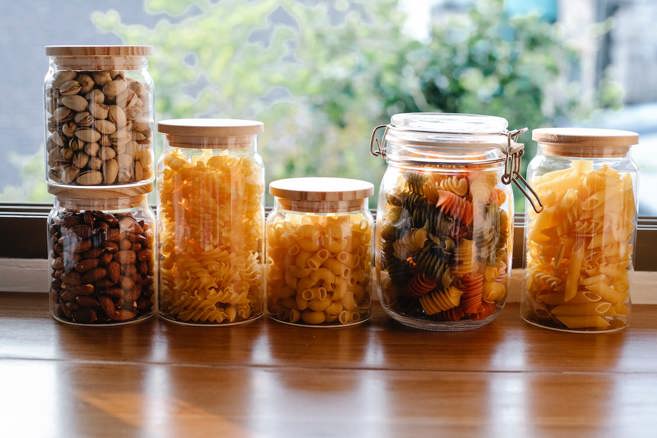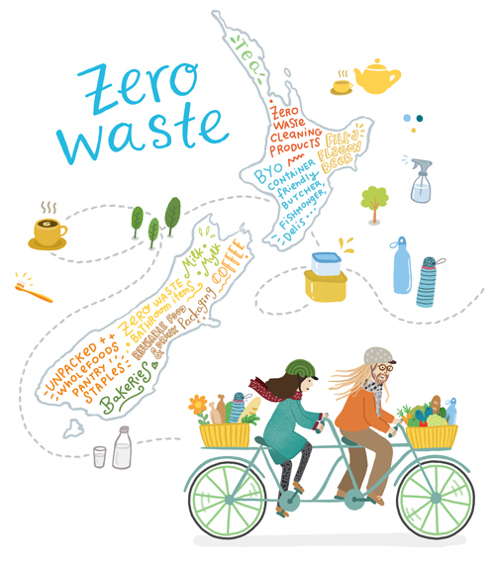Sustainable grocery shopping
A large amount of our household waste comes from what we purchase when grocery shopping, below are a few simple tips to help reduce this.
Reduce
- Create a shopping list with meal plans before you head to the store to reduce the amount of packaging and food waste. This will have a positive impact on your wallet too!
- Buy in bulk to reduce your overall packaging waste, such as:
- swapping small yoghurt pottles for large 1L containers
- swapping multipack chippy bags for one large bag. Serve them up in lunchboxes or picnics in smaller reusable containers.
- Make your own snacks instead of purchasing premade and packaged snacks. Homemade is often healthier and tastier. Check out this simple cracker recipe from Love Food Hate Waste.
- Buy bathroom, laundry and cleaning products in bulk. Or give making them from scratch a go. Here are some easy recipes using simple ingredients from The Rubbish Trip.
- Bulk ordering unpackaged toilet paper online is a good way of reducing plastic waste.
- Choose package free items from bulk stores, remembering to take your own reusable container from home. Bulk food stores are great places to source large quantities of pantry staples such as:
- flour and grains
- nuts and seeds
- dried pulses and beans
- unpackaged milk alternatives or dairy milk in glass reusable bottles.
- Don’t forget that Farmers Markets are a great place to find fresh local naked produce free of plastic!
Reuse
- Don’t forget to bring your own reusable shopping bags to the supermarket, market and grocery store.
- You can purchase reusable fruit and vegetable produce bags to cut down on unnecessary plastic or leave your fruit and veggies loose.
- Take your own container to the supermarket deli counter, butchers or fish mongers.
- Reuse containers such as larger yoghurt pots and ice cream containers for storage and freezing leftovers.

The Rubbish Trip
The Rubbish Trip has produced a number of Regional Zero Waste Shopping Guides that can help you find your local bulk stores and a brilliant Interactive Shopping Map.
Community options
- Community pantries (Pātaka Kai) - spaces to share food and garden crops.
- Community gardens - opportunities to get involved in growing food outside of your own garden. Community gardens often have produce for sale, providing locally grown and packaging free options that are in season!
- Share/swap - you can set up with friends to share different veggies, tools or household goods. There are also clothing swaps, tool libraries and other events that provide opportunities for this too.
- Timebanks - time banks allow you to share skills and time with people in your area. By helping each other out with skills already available in the community you can save money and strengthen social ties.

